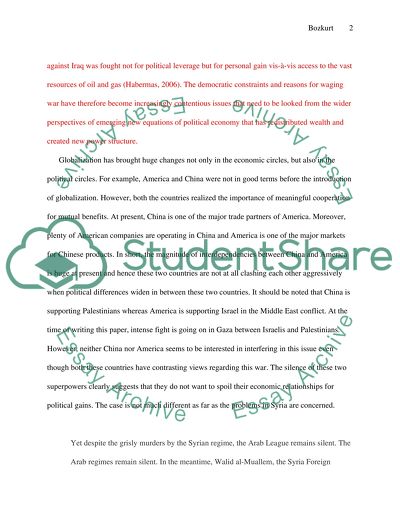Cite this document
(“Democratic Mechanisms and Political Risks to Waging War Essay - 1”, n.d.)
Retrieved from https://studentshare.org/politics/1609197-when-do-democratic-mechanisms-increase-political-risks-to-waging-war
Retrieved from https://studentshare.org/politics/1609197-when-do-democratic-mechanisms-increase-political-risks-to-waging-war
(Democratic Mechanisms and Political Risks to Waging War Essay - 1)
https://studentshare.org/politics/1609197-when-do-democratic-mechanisms-increase-political-risks-to-waging-war.
https://studentshare.org/politics/1609197-when-do-democratic-mechanisms-increase-political-risks-to-waging-war.
“Democratic Mechanisms and Political Risks to Waging War Essay - 1”, n.d. https://studentshare.org/politics/1609197-when-do-democratic-mechanisms-increase-political-risks-to-waging-war.


